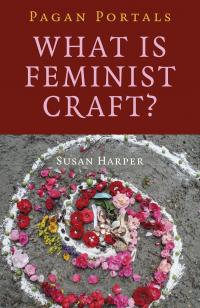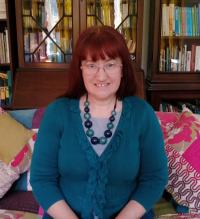
 Old Gods,
New Druids, by Robin Herne, offers a series of twenty humorous and informative lessons that can be used for group or solitary study and is ideal for people interested in Druidry and the Pagan
spirituality of ancient Britain and Ireland.
Old Gods,
New Druids, by Robin Herne, offers a series of twenty humorous and informative lessons that can be used for group or solitary study and is ideal for people interested in Druidry and the Pagan
spirituality of ancient Britain and Ireland.
Here's an excerpt:
The word Druid conjures up all sorts of images. For some, they see old men with Gandalf beards, wearing white robes and dancing round stone circles. Others imagine the same old men spattered in blood as they sacrifice virgins in true Hammer Horror film style. Some imagine tree-hugging mystics communing with nature in a lonely forest glade, whilst others envision upper-class twits engaging in some kind of Celtic Free Masonry. Strangely, few people imagine female Druids as their initial image.
There is no “One True” version of Druidry, as each person finds in it something unique for them. Professor Ronald Hutton has written an excellent book, ‘The Druids: A History’, looking at the various stereotypes. The ancient Mediterranean world gave us two contrasting images of how they perceived the Druids. In his Annals of CE 78 the Roman writer Tacitus, gave a secondhand description of the attack on the Druid colleges of Anglesey some seventeen years previously, saying:
They deemed it, indeed, a duty to cover their altars with the blood of captives and to consult their deities through human entrails.
This makes the Druids seem quite revolting. However, it is worth bearing in mind that the Roman authorities despised the Druids for stirring up political resistance against the occupation of Britain. The general Suetonius Paulinus was directed to massacre the Druids on Anglesey for this very reason. The evidence for human sacrifice in Britain and Ireland is quite limited, and it may well be that Tacitus exaggerated what did go on in order to justify the actions of the Roman army.
Other writers portrayed the Druids as people of great wisdom and social standing, giving them a more positive image. In ‘Lives of the Philosophers’, written in CE 230, Diogenes Laertius said:
Druids make their pronouncements by means of riddles and mysterious sayings, teaching that the Gods must be worshipped, and no evil done, and manly behaviour maintained.
Pomponius Mela’s ‘De Situ Orbis’ of CE 50 went into even more detail when he stated:
[The Celts] have, however, their own kind of eloquence, and teachers of wisdom called Druids. These profess to know the size and shape of the world, the movements of the heavens and of the stars, and the will of the Gods. They teach many things to the nobles of Gaul in a course of instruction lasting as long as twenty years, meeting in secret either in a cave or secluded dales.
Some of these more glowing writers came from cultures that actively traded with Celtic tribes, so they might have been laying it on a bit thick in order to curry favour. It certainly isn’t good for
business if you insult your trading partners! The upshot of this is, the ancient Celts (like every other ancient society) may have done things which modern people would find quite horrible ~ yet they
also engaged in many things that would be of great benefit to us now. As modern Druids we look to continue the good, and to understand the reasoning behind the more unpleasant activities
(always bearing in mind that many of the things our society does today would have seemed quite awful to our ancestors, and may be roundly condemned by future generations).
Buy the book - Book Depository Amazon US Amazon UK Barnes & Noble Hive Indiebound
Categories:
0 comments on this article






